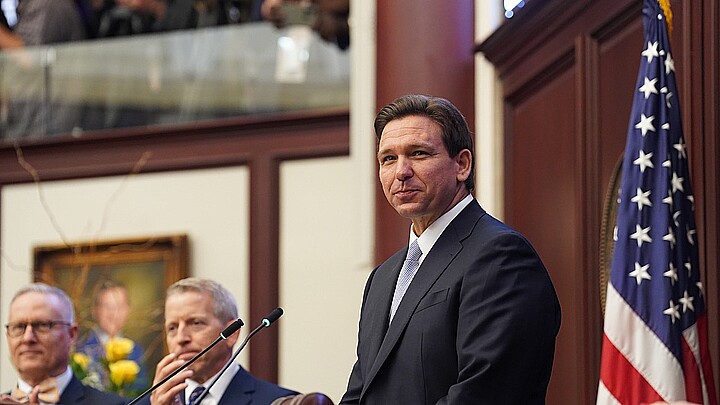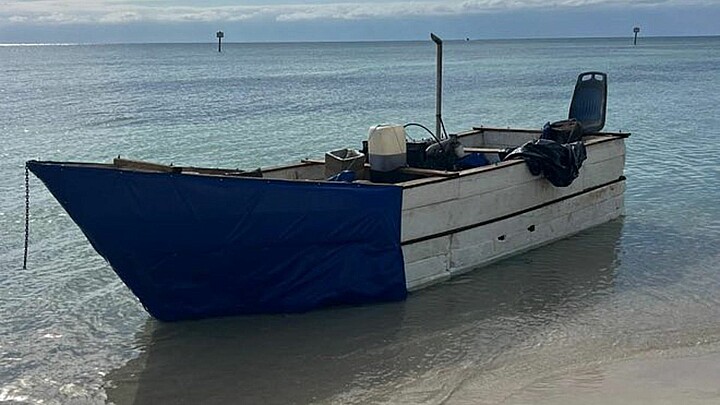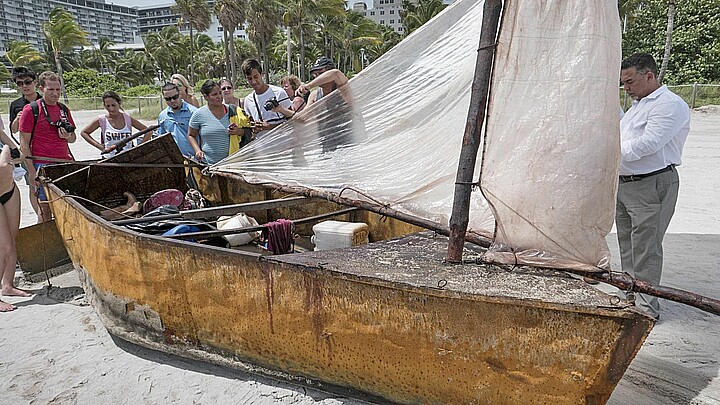Immigration
U.S. imposes new restrictions and costs for humanitarian parole sponsors of Cubans, Venezuelans, Nicaraguans and Haitians
The humanitarian parole program for Cubans, Venezuelans, Nicaraguans and Haitians, which has allowed thousands of people to reunite with their families in the United States, now faces new restrictions and additional costs for sponsors

August 30, 2024 11:06pm
Updated: September 2, 2024 11:53pm
The humanitarian parole program for Cubans, Venezuelans, Nicaraguans and Haitians, which has allowed thousands of people to reunite with their families in the United States, now faces new restrictions and additional costs for sponsors. The U.S. Dept. of Homeland Security (DHS) has announced that those who wish to sponsor beneficiaries under this program will be required to pay a $30 fee for fingerprinting, a process that must be completed in person.
The measure was reported by the DHS to Martí Noticias (Radio and Television Martí), highlighting that the main objective is to improve the validation of the identity and qualifications of sponsors, as well as to carry out additional background and security checks.
According to a statement published in the Federal Register, the submission of biometric data by sponsors will become a mandatory condition to continue with the process.
“USCIS will require submission of biometric data by sponsors as a condition of submission and will require payment of a $30 biometric services fee,” DHS said in its statement. This change, they say, is necessary to allow more rigorous validation of sponsors and ensure that they meet security requirements.
Sponsors should keep an eye on their accounts with the United States Citizenship and Immigration Services (USCIS), where they will receive notifications if more evidence or additional information is required during the review of their applications. However, DHS has not immediately clarified whether this new requirement will also apply to sponsors already in the system or if it will only affect new applicants.
Form I-134A, which must be submitted by an individual residing in the United States, is the document used to apply to be a sponsor and commit to providing financial support to the beneficiary during their stay in the country. Reviewing these forms and fingerprinting are now part of a more comprehensive process aimed at detecting and preventing fraud.
The humanitarian parole program had been temporarily suspended earlier this month after a report revealed a significant level of application fraud. Among the irregularities detected were multiple applications that used the same address and Social Security numbers of deceased people.
Following these revelations, DHS decided to pause travel authorizations while procedures were reviewed and additional security measures were implemented. The suspension generated uncertainty among thousands of beneficiaries, mostly Cubans, who had been waiting since the start of the program in January 2023 to reunite with their families in the United States.
Last Thursday, DHS announced the resumption of issuing travel permits, but with more rigorous scrutiny of sponsors' financial and criminal backgrounds, as well as additional investigations to identify fraudulent profiles. Sponsors who have previously submitted rejected applications will be able to reapply but will now be required to undergo fingerprinting as part of the process.
The decision to resume the program under these new conditions comes at a crucial time, with more than two million humanitarian parole applications pending, according to leaked data from a report on the program. As of July, more than 530,000 immigrants had been authorized to travel to the United States under this program, providing temporary relief to those seeking to escape crises in their home countries.
However, the temporary suspension and new measures have raised concerns and criticism, especially among those who believe that these restrictions may further complicate an already difficult process. In mid-August, a U.S. Congressional committee launched an investigation into the Biden administration's decision to temporarily freeze the program.
For many beneficiaries and their families, the new measures represent an additional obstacle in their struggle to reunite and start a new life in the United States. As the program moves forward under these new conditions, it remains to be seen how it will impact the flow of immigrants and USCIS's ability to effectively manage a program of such magnitude.










